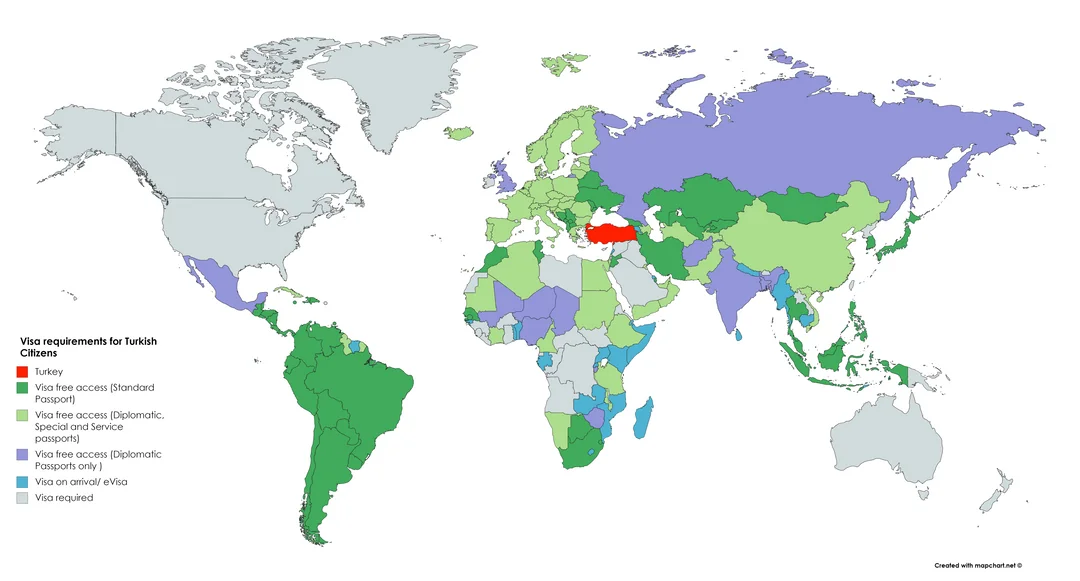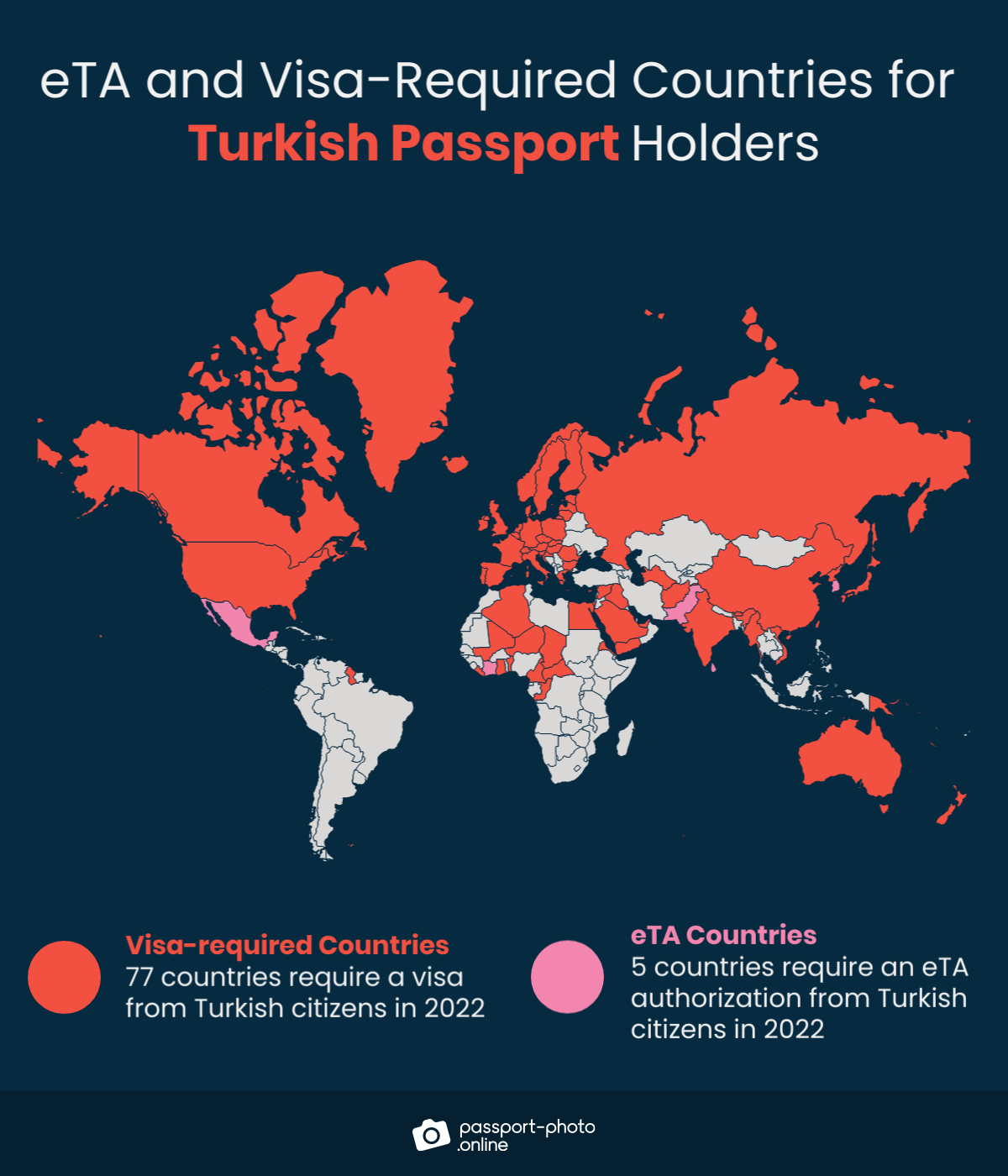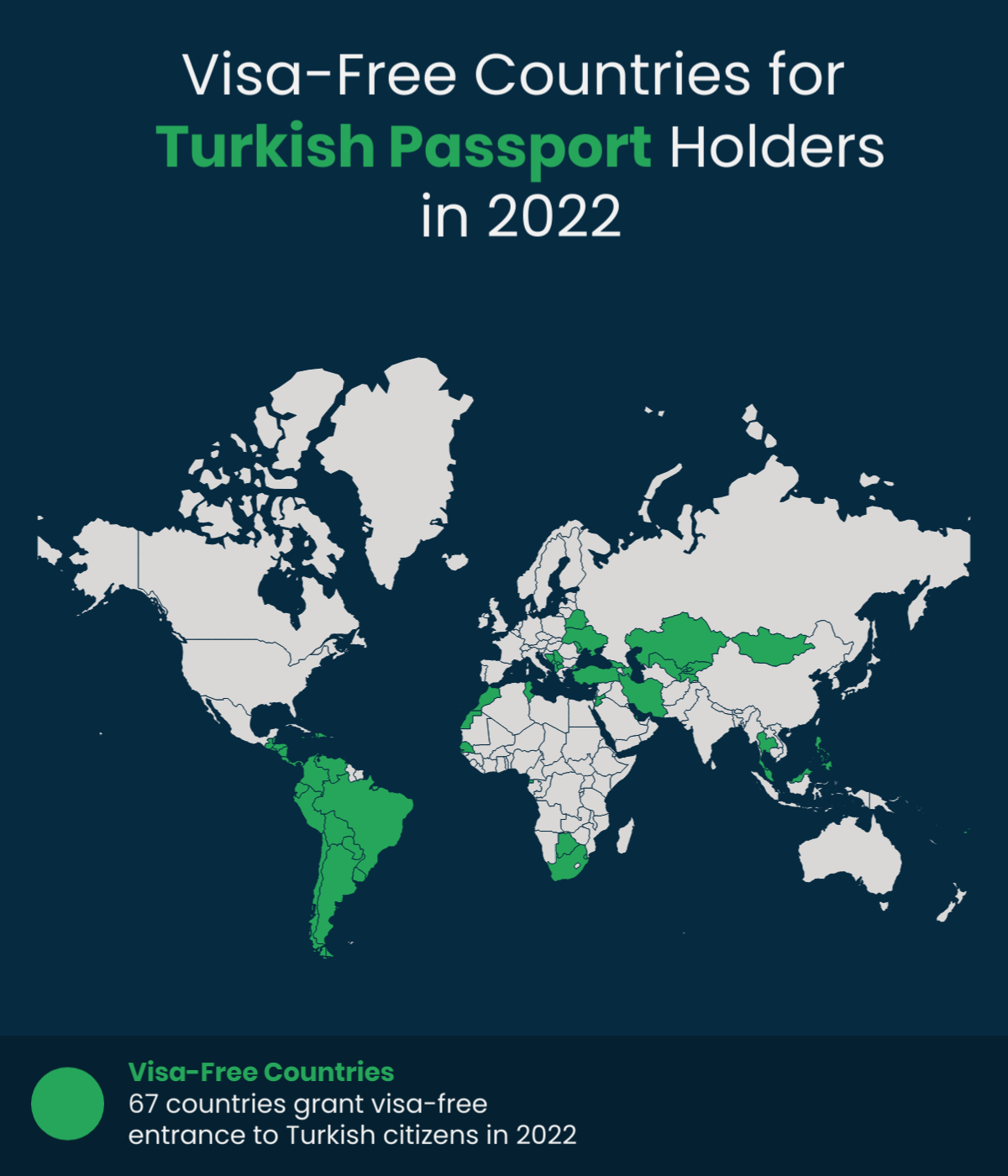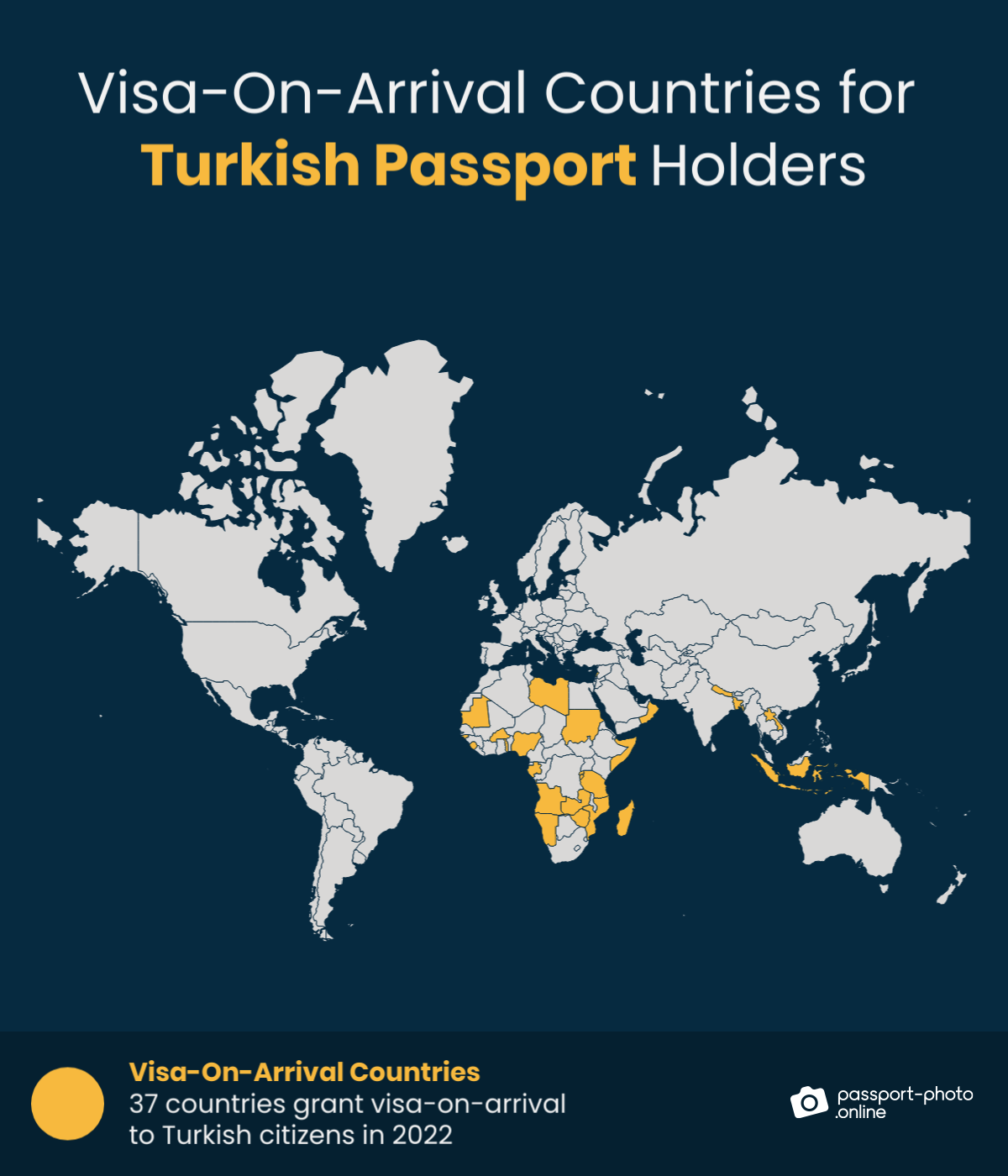Travelling abroad as a Turkish citizen may require obtaining a visa beforehand. The specific visa requirements vary depending on the destination country and the purpose of the visit. It is important to research and understand these requirements well in advance of any planned travel dates. Some countries may offer visa-free entry or visa-on-arrival options for Turkish citizens, but it is always recommended to apply for a visa well in advance to avoid any issues.

Rules and Regulations for Turkish Citizens Visa Requirements
Turkish citizens may be required to obtain a visa in order to travel to certain countries. The regulations surrounding visas can vary significantly depending on both the destination country and the purpose of the visit. It's important for Turkish citizens to be aware of these requirements before making travel plans.
- Purpose and Overview of Visa Requirements
These prerequisites are established by the destination countries' governments and are contingent upon various factors such as the purpose of the visit, the intended length of stay, and diplomatic agreements between Turkey and the hosting nations.
- Diverse Prerequisites for Different Destinations
There exists a unique set of prerequisites that must be fulfilled before entry is granted. They can vary widely, ranging from obtaining a visa in advance to potentially qualifying for visa-free entry or obtaining a visa upon arrival. Visa-free entry permits Turkish travellers to enter certain countries without a visa, typically for tourism or short stays.
- Visa-Free Entry and Visa-on-Arrival Options
Visa-free entry allows Turkish citizens to enter a specific country without obtaining a visa, often for a predetermined duration, catering to tourism or short visits. On the other hand, the visa-on-arrival option lets Turkish travellers acquire a visa upon reaching the destination's entry point.
- Formal Application Process for Most Countries
This typically entails submitting essential documents such as a valid passport, and may include an invitation letter if relevant, proof of financial stability, and a duly completed visa application form. Additionally, a processing fee is usually mandated, covering administrative costs tied to the review and processing of visa applications.
- Diverse Types of Visas Depending on Purpose
Tourist visas cater to leisure visits, while business visas are designed for individuals attending meetings, conferences, or engaging in commercial activities. There are also specialised visas like student visas, work visas, and more, each tailored to specific purposes.
- Importance of Being Informed and Proactive
This proactive approach ensures that all necessary documentation is collected and accurately submitted, minimising the risk of travel disruptions due to unforeseen visa-related problems. Staying updated with visa policy changes is vital, as these requirements can shift due to evolving diplomatic relations and geopolitical factors.
- Navigating Visa Requirements with Confidence
In summary, comprehending and adhering to visa requirements is a pivotal aspect of international travel for Turkish citizens. By following the appropriate procedures and staying informed, Turkish citizens can ensure a smooth and hassle-free travel experience.
Varied Visa Requirements for Turkish Citizens
Visa requirements differ based on where Turkish citizens intend to travel and the reason for their visit. Some countries might demand a visa for tourism, business, or other purposes, each with its own set of conditions. The specifics can include the type of visa needed, the duration of stay allowed, and any associated restrictions.
- Visa in Advance
This process often entails meticulous preparation, entailing the compilation and submission of essential documents. These documents might range from the fundamental, such as a valid passport and evidence of travel plans, to specific requisites tailored to the nature of the visit, which could encompass an invitation letter, financial documentation, or details of intended activities.

- Visa-Free Entry
Yet, in this array of requirements, certain countries extend a gesture of hospitality to Turkish citizens, offering visa-free entry for short stays. This alleviates the need for a formal visa application, fostering smoother and more spontaneous travel experiences. This provision is especially beneficial for those inclined towards brief exploratory jaunts or swift business engagements, as it facilitates swift and hassle-free entry.

- Visa-on-Arrival
Adding to the spectrum of options, the concept of visa-on-arrival further embellishes this diverse landscape. Under specific circumstances, Turkish travellers can potentially acquire a visa upon their arrival at the destination's point of entry. This flexibility caters to the needs of individuals whose travel plans are subject to change or who prefer to organise arrangements in proximity to their departure.

- Specialised Visas
Turkish citizens aspiring to study abroad, engage in employment endeavours, or partake in conferences may find themselves traversing distinct visa categories. Each of these categories entails its own set of prerequisites, application procedures, and supporting documentation, tailored to accommodate the specific nature of the intended activities.
In sum, Armed with this knowledge, Turkish travellers can confidently embark on their journeys, fortified against unforeseen obstacles, and poised for an enriched and triumphant travel adventure.
Non- Ordinary Passports
- Diplomatic Passport Privileges
Turkish citizens holding diplomatic or service passports enjoy special benefits regarding visa-free access and entry conditions in specific countries.
These countries include Afghanistan, Bangladesh, Burundi, Chad, Ghana, Guinea, India, Liberia, Mali, Mexico, Niger, Nigeria, Uganda, the United Kingdom, and Zimbabwe. This exclusive treatment underscores the importance of the diplomatic connections Turkey maintains with these nations.
- Extended Visa-Free Access
Beyond the aforementioned privileges, Turkish citizens with diplomatic, special, or service passports enjoy extended visa-free access to a wide array of other countries.
This expanded list features nations such as Algeria, Austria, Azerbaijan, Belgium, Bulgaria, Cameroon, Cape Verde, China, Côte d'Ivoire, Cuba, Croatia, Czech Republic, Denmark, Egypt, Estonia, Ethiopia, Finland, France, Germany, Greece, Guyana, Hungary, Iceland, Iraq, Israel, Italy, Kuwait, Latvia, Liechtenstein, Lithuania, Luxembourg, Malawi, Malta, Mauritania, Monaco, Mozambique, Namibia, the Netherlands (including the Caribbean), Norway, Oman, Pakistan, Poland, Portugal, Romania, Russia, Rwanda, San Marino, Slovakia, Slovenia, Spain, Sudan, Sweden, Switzerland, Tajikistan, Tanzania, Turkmenistan, the United Arab Emirates, Vatican City, Vietnam, and Yemen.
- Visa on Arrival Provision
Moreover, specific countries, notably Bahrain, Burkina Faso, Cambodia, and South Sudan, have implemented a provision that not only caters to Turkish diplomatic, official, service, and special passport holders but also extends the same privileges to individuals with equivalent passports from any country.
- Enhanced Stay Conditions
Diplomatic or service passport holders are granted longer durations of stay or more favourable entry conditions compared to holders of ordinary passports. These agreements are designed to facilitate the seamless movement and participation of individuals on official government assignments or services, contributing to stronger diplomatic ties and effective international cooperation.
Key points on Non-Visa Travel Restrictions
Non-visa travel restrictions encompass various factors affecting international mobility. These include passport requirements such as blank pages, vaccination mandates for specific countries, passport validity length regulations, criminal record checks, persona non grata declarations, restrictions linked to Israeli stamps, and biometric identification protocols. Understanding these key points is essential for travellers navigating the intricacies of global entry regulations.
- Blank Passport Pages
Many countries require a minimum number of blank pages in the passport for visa stamps. Endorsement pages are not considered valid.
- Vaccination Requirements
Several African countries require travellers above a certain age to possess an International Certificate of Vaccination or Prophylaxis. Some countries only require vaccination if coming from or transiting through certain regions, with COVID-19-related health restrictions becoming more common.
- Passport Validity Length
Different countries have varying requirements for passport validity upon arrival. Some demand passports be valid throughout the intended stay, while others require validity for at least 6 months or even just one month beyond departure.
- Criminal Record
Some countries, including Australia, Canada, Fiji, New Zealand, and the US, may deny entry based on a criminal record, considering the nature of the conviction and its duration.
- Persona Non Grata
Countries can declare diplomats or individuals persona non grata, preventing entry due to diplomatic or unlawful reasons.
- Israeli Stamps
Several countries, such as Kuwait, Lebanon, Libya, Syria, and Yemen, do not admit travellers with Israeli passport stamps or evidence of travel to Israel. Some nations, like Israel, refrain from stamping passports to bypass this restriction.
- Biometrics
Some countries require fingerprinting and photos of travellers upon entry, and some even mandate these processes for transit passengers. Biometric identification technologies like iris scanning are also used for e-passports and security purposes.
Travellers should be aware of these non-visa travel restrictions to ensure smooth entry into their desired destinations and avoid any complications.
Navigating the Visa Application Process
Embarking on international travel as a Turkish citizen often involves engaging with the intricate visa application process, a pivotal step that determines one's eligibility for entry into foreign countries. Navigating this process requires meticulous attention to detail, thorough preparation, and adherence to the established procedures to ensure a seamless and successful application.
Gathering Essential Documents
A fundamental starting point is the collection of essential documents required for the visa application. These documents may include a valid passport, recent passport-sized photographs, proof of travel plans (such as flight itineraries and accommodation bookings), and a completed visa application form provided by the host country's embassy or consulate.
Supporting Documentation
Depending on the purpose of the visit, additional supporting documents might be necessary. These could range from an invitation letter from a host organisation, proof of financial stability, travel insurance, employment verification, educational enrollment, or any other documentation that substantiates the traveller's intentions and eligibility.
Application Submission
Once all necessary documents are assembled, the next step involves submitting the application. This can usually be done online or by visiting the appropriate embassy or consulate. It's essential to ensure that the application is filled out accurately and comprehensively, as errors or incomplete information can lead to delays or rejections.
Financial Considerations
Many countries require applicants to demonstrate sufficient financial capacity to cover their stay during the visit. This might involve submitting bank statements, employment verification, or other forms of financial proof. Adequate preparation in this regard is vital to meet the host country's requirements.
Processing Fees
Most visa applications incur a processing fee, covering the administrative costs associated with reviewing and processing the application. Understanding the fee structure and ensuring timely payment is crucial to avoid delays in the application process.
Interviews and Biometrics
Certain countries may require applicants to attend an in-person interview at the embassy or consulate. Additionally, biometric data, such as fingerprints and photographs, might be collected as part of the application process. Being aware of these requirements and scheduling appointments as needed is essential.
Waiting Period
After submitting the application, a waiting period ensues during which the embassy or consulate reviews the documentation and assesses the applicant's eligibility. This period can vary based on factors such as the destination country, the type of visa, and the time of year. Planning ahead and applying well in advance can help mitigate potential delays.
Notification and Collecting Visas
Once the application is processed, applicants receive a notification regarding the status of their visa application. If approved, instructions for collecting the visa and any accompanying documents are provided. It's important to follow these instructions meticulously to ensure the smooth receipt of the visa.
A Precise Journey of Preparation
The visa application process is a journey of preparation and attention to detail. For Turkish citizens seeking international travel, understanding the intricacies of this process, adhering to requirements, and allowing ample time for processing are integral to securing a visa successfully. By navigating this process meticulously, travellers set the stage for a rewarding and uninterrupted journey to their chosen destination.
FAQS
What are visa requirements for Turkish citizens?
Visa requirements outline the conditions Turkish citizens must fulfil to gain entry into foreign countries. These conditions can include obtaining a visa, meeting specific documentation criteria, and adhering to regulations set by the destination country.
How do visa requirements vary for different countries?
Visa requirements vary based on factors such as the destination country, the purpose of the visit, and diplomatic agreements. Some countries might allow visa-free entry or offer visa-on-arrival options, while others require a formal application process.
What is visa-free entry?
Visa-free entry allows Turkish citizens to enter certain countries without obtaining a visa. This privilege is often limited to a specific duration and is usually suitable for tourism or short stays.
What is a visa-on-arrival?
Visa-on-arrival permits Turkish travellers to obtain a visa upon reaching their destination's port of entry. This option is convenient for those with spontaneous travel plans or uncertain itineraries.
What documents are typically required for a visa application?
Commonly required documents include a valid passport, a completed visa application form, proof of travel plans, financial stability evidence, and additional documents specific to the purpose of the visit, such as invitation letters.
How can I ensure a smooth visa application process?
Applying well in advance is key to a smooth process. Gather all necessary documents accurately, pay attention to visa fees, and follow the application instructions provided by the host country's embassy or consulate.
Obtain Your eVisa for Turkey
Step1: Complete the online application form by providing your passport details.
Step2: Safely process your payment using your credit card through our secure online platform.
Step3: Monitor your email for payment verification and the electronic dispatch of your eVisa.
